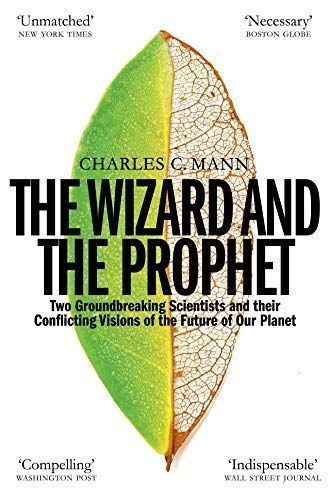
The Wizard and the Prophet Two Groundbreaking Scientists and Their Conflicting Visions of the Future of Our Planet
Two Groundbreaking Scientists and Their Conflicting Visions of the Future of Our Planet'Does the earth's finite carrying capacity mean economic growth has to stop? That momentous question is the subject of Charles Mann's brilliant book.' Wall Street JournalIn forty years, the population of the Earth will reach ten billion. Can our world support so many people? What kind of world will it be? In this unique, original and important book, Charles C. Mann illuminates the four great challenges we face - food, water, energy, climate change - through an exploration of the crucial work and wide-ranging influence of two little-known twentieth-century scientists, Norman Borlaug and William Vogt.Vogt (the Prophet) was the intellectual forefather of the environmental movement, and believed that in our using more than the planet has to give, our prosperity will bring us to ruin. Borlaug's research in the 1950s led to the development of modern high-yield crops that have saved millions from starvation. The Wizard of Mann's title, he believed that science will continue to rise to the challenges we face.Mann tells the stories of these scientists and their crucial influence on today's debates as his story ranges from Mexico to India, across continents and oceans and from the past and the present to the future. Brilliantly original in concept, wryly observant and deeply researched, The Wizard and the Prophet is essential reading for readers of Yuval Noah Harari's Sapiens or Jared Diamond's Guns, Germs and Steel, for anyone interested in how we got here and in the future of our species.
Reviews
Dana Kraft@dkatx
Bryan Alexander@bryanalexander
Colin O'Brien@onepointzero
Andrew Molina@momoprobs
Sarvagnan S@sarvagnan
Aaron Lewis@aaronglewis
Jesper Bylund@Jesper